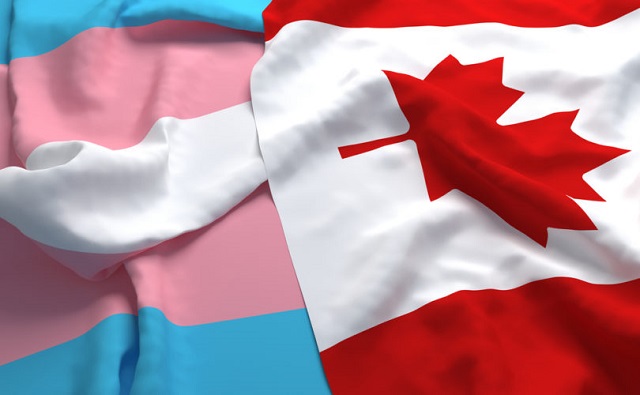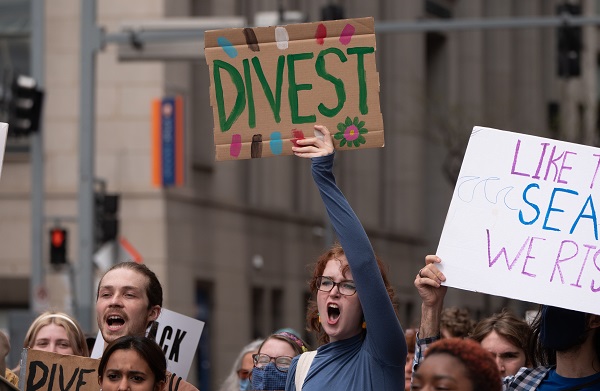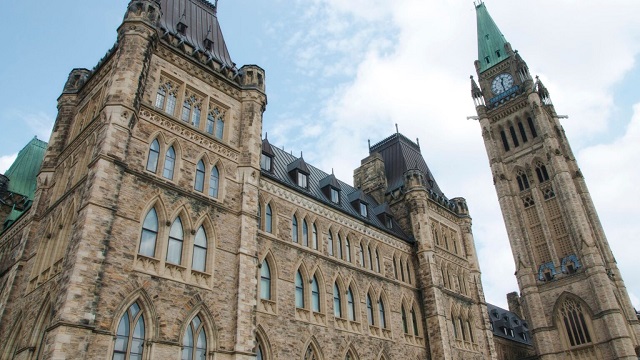Business
Trudeau’s labor minister pushes ‘equity’ mandate to favor LGBT job applicants

From LifeSiteNews
The report presented by Liberal Labour Minister Seamus O’Regan suggests giving special privileges to ‘LGBT-identifying and Black Canadians’ in the hiring process in the name of ‘equity,’ and dismisses concerns that such a move is tantamount to discrimination.
The Trudeau government is celebrating a newly proposed equity mandate which would reward LGBT-identifying job applicants over those with natural sexual proclivities.
On December 11, Liberal Labour Minister Seamus O’Regan announced the Employment Equity Act Review Task Force report, which seeks to add “LGBT-identifying and Black Canadians” to the list of those with special hiring privileges.
“It’s pretty historical,” O’Regan said outside the House of Commons foyer on Monday. “We are naming Black people and 2SLGBTQI+ individuals as designated groups under the Employment Equity Act.”
According to information obtained by the Canadian Broadcasting Corporation (CBC), the Liberal government, under the leadership of Prime Minister Justin Trudeau, “broadly supports” the recommendation.
The report, led by McGill University law professor Adelle Blackett, assured Canadians that it would not lead to “reverse discrimination” or abolish a merit-based hiring system, despite seemingly being formulated to do exactly that.
“Let us be clear: the Employment Equity Act framework does not impose quotas, and the notion of ‘reverse discrimination’ is not part of Canadian equality law and is likewise not part of the Canadian Employment Equity Act framework,” reads the introduction.
While the job candidates would still have to meet certain requirements to be considered for the position, they would not be competing against all candidates for the position but just those within their so-called minority group. As a result, they would have a higher chance of being hired for the position compared to someone who did not fit into the group.
The report dismissed this concern, however, labeling it as an American, not Canadian, argument. “The U.S. idea of ‘reverse discrimination’ has in particular gained a lot of attention. It is used so often in common parlance that many people do not recognize that it is not a part of Canadian substantive equality law,” reads the report.
The report also attempted to address the problem that because being an LGBT-identifying person is not an objective category, it is conceivable that people could just say they are members of the LGBT so-called community as a way to gain an advantage in the hiring process.
“Declarations of this nature… would constitute dishonesty in the employment relationship and although the threshold for dismissal on that basis is high, contextual factors to assessing the appropriate sanction would rationally include any preferential treatment received on the basis of the false statement,” the report said.
In recent years, there has been a push for in Canada, the United States and much of the West to go along with so-called “diversity, equity, & inclusion” (DEI) hiring and promotion practices.
The controversy surrounding DEI is that it usually goes hand-in-hand with a slew of identity-based social causes and grievances that undermine merit-based hiring, meaning that the most qualified person for a job may be overlooked in favor of someone of a particular skin color, ethnicity or sexual proclivity.
In 2019, the Canadian military was exposed for periodically closing all applications to the armed forces except to women if their so-called employment equity targets had not been met.
Similarly, in June 2023, Ontario announced free training for truck drivers; however, the offer was only extended to “women, newcomers and others from underrepresented groups,” effectively barring anyone except white, heterosexual men.
Additionally, this October, British Columbia construction companies were offered an extra cash incentive if they hire first-year apprentices who “self-identify” as LGBT, disabled, or anything other than a white heterosexual male.
Business
UN plastics plans are unscientific and unrealistic

News release from the Coalition of Concerned Manufacturers and Businesses of Canada
“We must focus on practical solutions and upgrading our recycling infrastructure, not ridiculous restrictions that will harm our health care system, sanitary food supply, increase costs and endanger Canadians’ safety, among other downsides.”
This week Ottawa welcomes 4,000 delegates from the United Nations to discuss how they will oversee a reduction and even possible elimination of plastics from our lives. The key problem is no one has ever figured out how they will replace this essential component of our modern economy and society. The Coalition of Concerned Manufacturers and Businesses of Canada (CCMBC) has launched an information campaign to discuss the realities of plastic, how it contributes massively to our society and the foolishness of those who think plastics can be eliminated or greatly reduced without creating serious problems for key industries such as health care, sanitary food provision, many essential consumer products and safety/protective equipment, among others. CCMBC President Catherine Swift said “The key goal should be to keep plastics in the economy and out of the environment, not eliminate many valuable and irreplaceable plastic items. The plastics and petrochemical industries represent about 300,000 jobs and tens of billions contribution to GDP in Canada, and are on a growth trend.”
The UN campaign to ban plastics to date has been thwarted by reality and facts. UN efforts to eliminate plastics began in 2017, motivated by such terrible images as rivers with massive amounts of floating plastic and animals suffering from negative effects of plastic materials. Although these images were dramatic and disturbing, they do not represent the big picture of what is really happening and do not take into account the many ways plastics are hugely positive elements of modern society. Swift added “Furthermore, Canada is not one of the problem countries with respect to plastics waste. Developing countries are the main culprits and any solution must involve helping the leading plastics polluters find workable solutions and better recycling technology and practices.”
The main goal of plastic is to preserve and protect. Can you imagine health care without sanitary, flexible, irreplaceable and recyclable plastic products? How would we keep our food fresh, clean and healthy without plastic wraps and packaging? Plastic replaces many heavier and less durable materials in so many consumer products too numerous to count. Plastics help the environment by reducing food waste, replacing heavier materials in automobiles and other products that make them more energy-efficient. Many plastics are infinitely recyclable and innovations are taking place to improve them constantly. What is also less known is that most of the replacements for plastics are more expensive and actually worse for the environment.
Swift stated “Environment Minister Steven Guilbeault has been convinced by the superficial arguments that plastics are always bad despite the facts. He has pursued a campaign against all plastics as a result, without factoring in the reality of the immense value of plastic products and that nothing can replace their many attributes. Fortunately, the Canadian Federal court overturned his absurd ban on a number of plastic products on the basis that it was unscientific, impractical and impinged upon provincial jurisdiction.” Sadly, Guilbeault and his Liberal cohorts plan to appeal this legal decision despite its common-sense conclusions. Opinion polls of Canadians show that a strong majority would prefer this government abandon its plastics crusade at this point, but history shows these Liberals prefer pursuing their unrealistic and costly ideologies instead of policies that Canadians support.
The bottom line is that plastics are an essential part of our modern society and opposition has been based on erroneous premises and ill-informed environmentalist claims. Swift concluded “Canada’s record on plastics is one of the best in the world. This doesn’t mean the status quo is sufficient, but we must focus on practical solutions and upgrading our recycling infrastructure, not ridiculous restrictions that will harm our health care system, sanitary food supply, increase costs and endanger Canadians’ safety, among other downsides.” The current Liberal government approach is one that has no basis in fact or science and emphasizes virtue-signaling over tangible and measurable results. Swift noted “The UN’s original founding purpose after World War II was to prevent another world war. Given our fractious international climate, they should stick to their original goal instead of promoting social justice warrior causes that are unhelpful and expensive.”
The CCMBC was formed in 2016 with a mandate to advocate for proactive and innovative policies that are conducive to manufacturing and business retention and safeguarding job growth in Canada.
SOURCE Coalition of Concerned Manufacturers and Businesses of Canada
Automotive
The EV ‘Bloodbath’ Arrives Early

 From the Daily Caller News Foundation
From the Daily Caller News Foundation
By David Blackmon
Ever since March 16, when presidential candidate Donald Trump created a controversy by predicting President Joe Biden’s efforts to force Americans to convert their lives to electric-vehicle (EV) lifestyles would end in a “bloodbath” for the U.S. auto industry, the industry’s own disastrous results have consistently proven him accurate.
The latest example came this week when Ford Motor Company reported that it had somehow managed to lose $132,000 per unit sold during Q1 2024 in its Model e EV division. The disastrous first quarter results follow the equally disastrous results for 2023, when the company said it lost $4.7 billion in Model e for the full 12-month period.
While the company has remained profitable overall thanks to strong demand for its legacy internal combustion SUV, pickup, and heavy vehicle models, the string of major losses in its EV line led the company to announce a shift in strategic vision in early April. Ford CEO Jim Farley said then that the company would delay the introduction of additional planned all-electric models and scale back production of current models like the F-150 Lightning pickup while refocusing efforts on introducing new hybrid models across its business line.
General Motors reported it had good overall Q1 results, but they were based on strong sales of its gas-powered SUV and truck models, not its EVs. GM is so gun-shy about reporting EV-specific results that it doesn’t break them out in its quarterly reports, so there is no way of knowing what the real bottom line amounts to from that part of the business. This is possibly a practice Ford should consider adopting.
After reporting its own disappointing Q1 results in which adjusted earnings collapsed by 48% and deliveries dropped by 20% from the previous quarter, Tesla announced it is laying off 10 percent of its global workforce, including 2,688 employees at its Austin plant, where its vaunted Cybertruck is manufactured. Since its introduction in November, the Cybertruck has been beset by buyer complaints ranging from breakdowns within minutes after taking delivery, to its $3,000 camping tent feature failing to deploy, to an incident in which one buyer complained his vehicle shut down for 5 hours after he failed to put the truck in “carwash mode” before running it through a local car wash.
Meanwhile, international auto rental company Hertz is now fire selling its own fleet of Teslas and other EV models in its efforts to salvage a little final value from what is turning out to be a disastrous EV gamble. In a giant fit of green virtue-signaling, the company invested whole hog into the Biden subsidy program in 2021 with a mass purchase of as many as 100,000 Teslas and 50,000 Polestar models, only to find that customer demand for renting electric cars was as tepid as demand to buy them outright. For its troubles, Hertz reported it had lost $392 million during Q1, attributing $195 million of the loss to its EV struggles. Hertz’s share price plummeted by about 20% on April 25, and was down by 55% for the year.
If all this financial carnage does not yet constitute a “bloodbath” for the U.S. EV sector, it is difficult to imagine what would. But wait: It really isn’t all that hard to imagine at all, is it? When he used that term back in March, Trump was referring not just to the ruinous Biden subsidy program, but also to plans by China to establish an EV-manufacturing beachhead in Mexico, from which it would be able to flood the U.S. market with its cheap but high-quality electric models. That would definitely cause an already disastrous domestic EV market to get even worse, wouldn’t it?
The bottom line here is that it is becoming obvious even to ardent EV fans that US consumer demand for EVs has reached a peak long before the industry and government expected it would.
It’s a bit of a perfect storm, one that rent-seeking company executives and obliging policymakers brought upon themselves. Given that this outcome was highly predictable, with so many warning that it was in fact inevitable, a reckoning from investors and corporate boards and voters will soon come due. It could become a bloodbath of its own, and perhaps it should.
David Blackmon is an energy writer and consultant based in Texas. He spent 40 years in the oil and gas business, where he specialized in public policy and communications.
-

 COVID-192 days ago
COVID-192 days agoJapanese study finds ‘significant increases’ in cancer deaths after third mRNA COVID doses
-

 Business2 days ago
Business2 days agoMaxime Bernier warns Canadians of Trudeau’s plan to implement WEF global tax regime
-

 Brownstone Institute2 days ago
Brownstone Institute2 days agoA Coup Without Firing a Shot
-

 COVID-192 days ago
COVID-192 days agoWHO Official Admits the Truth About Passports
-

 Bruce Dowbiggin2 days ago
Bruce Dowbiggin2 days agoCoyotes Ugly: The Sad Obsession Of Gary Bettman
-

 Energy2 days ago
Energy2 days agoAnti-LNG activists have decided that they now actually care for LNG investors after years of calling to divest
-

 Freedom Convoy2 days ago
Freedom Convoy2 days agoOttawa spent “excessive” $2.2 million fighting Emergencies Act challenge
-

 Brownstone Institute2 days ago
Brownstone Institute2 days agoIs the Overton Window Real, Imagined, or Constructed?


